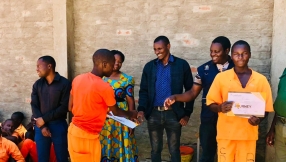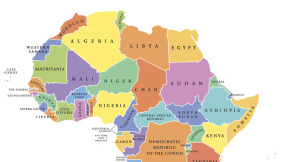Thousands of Pilgrims Visit the Tomb of Pope John Paul
The ceremonies to mourn Pope John Paul II have led many religious and political leaders to Rome together with around 3 million pilgrims, the Vatican have reported. On Wednesday, as the grottoes were re-opened, another wave of pilgrims were expected to visit Rome.
Thousands of people, who were influenced by the life of John Paul II came to visit his tomb and not only pray for him, but also to pray to him, as many Roman Catholics consider Pope John Paul II to be a saint. "I'm hoping maybe for a little miracle," said Myrna Palmer, 67, of Hagerstown, Md. "I'm praying to him that my husband gets his eyesight back."
Many pilgrims lined up at 4am - 3 hours before the grottoes were re-opened and thousands of others were travelling overnight just to be the first in line. Among them Angelo de Tommaso, a 30-year-old accountant said: "We are Catholics, and we had to see the Pope one last time."
Pilgrims have been praying before the tomb and handing their religious articles to the ushers, who before handing them back touched them to the grave.
The grave is situated to the right of the main nave in an arched alcove with potted lilies behind it and a small red candle burning at its front. On the wall above hangs a marble relief of Madonna and the Child.
The grave is located just a few steps from the tomb that is traditionally believed to belong to Apostle Peter, the first Pope. It is marked by a rectangular white slab of marble with gray streaks. On one line his name in Latin with gold is engraved: "IOANNES PAVLVS PPII." On the other the dates of his pontificate: "16 X, 1978-2 IV, 2005." Underneath is the monogram for Christ - the interlocking X and P.
The grave fulfils the wishes of Pope John Paul II written in his last will, that he be buried "in the bare earth, not a tomb."
His plot is one of the few dug in the ground in the central nave of the grottoes, the huge series of chapels and alcoves under the basilica, where the popes have been buried over the centuries.
Before the grottoes were re-opened, some of the bishops prayed on Tuesday evening as their last homage. Two-by-two, in crimson robes and tall white bishop's mitres, they stood at the end of the marble slab and bowed their heads.
They resumed their preparations for the Conclave that will begin on 18th April. They are meeting everyday and praying together for guidance, to get to know each other and manage some of the more mundane matters of the church.
During their last two meetings this week they were discussing financial matters, indicating the problems confronting the Vatican with the 2,674 salaried staff and raising expenses. The latest publicly released financial statement for 2003 reported on revenues at about $250 million, $11.8 million short of costs.
Cardinal Sergio Sebastiani who is Vatican's economic chief, briefly informed church leaders on the financial statement for 2004 and some key points for 2005. The Vatican did not provide any other details.
Cardinals have also been using their time to meditate on the important task ahead: choosing the new pope. It will be the first conclave for all but 3 Cardinals among the 115 who will take part in voting. The longest conclave in the history was in 13th century, which took two and half years and was ended by election of Gregory X. After his election, he introduced changes to speed up the election. Looking at the recent history, the voting be a much faster process. Among the 8 Conclaves of the 20th century, no election has lasted longer then 5 days, and two of them were completed on the second day.













